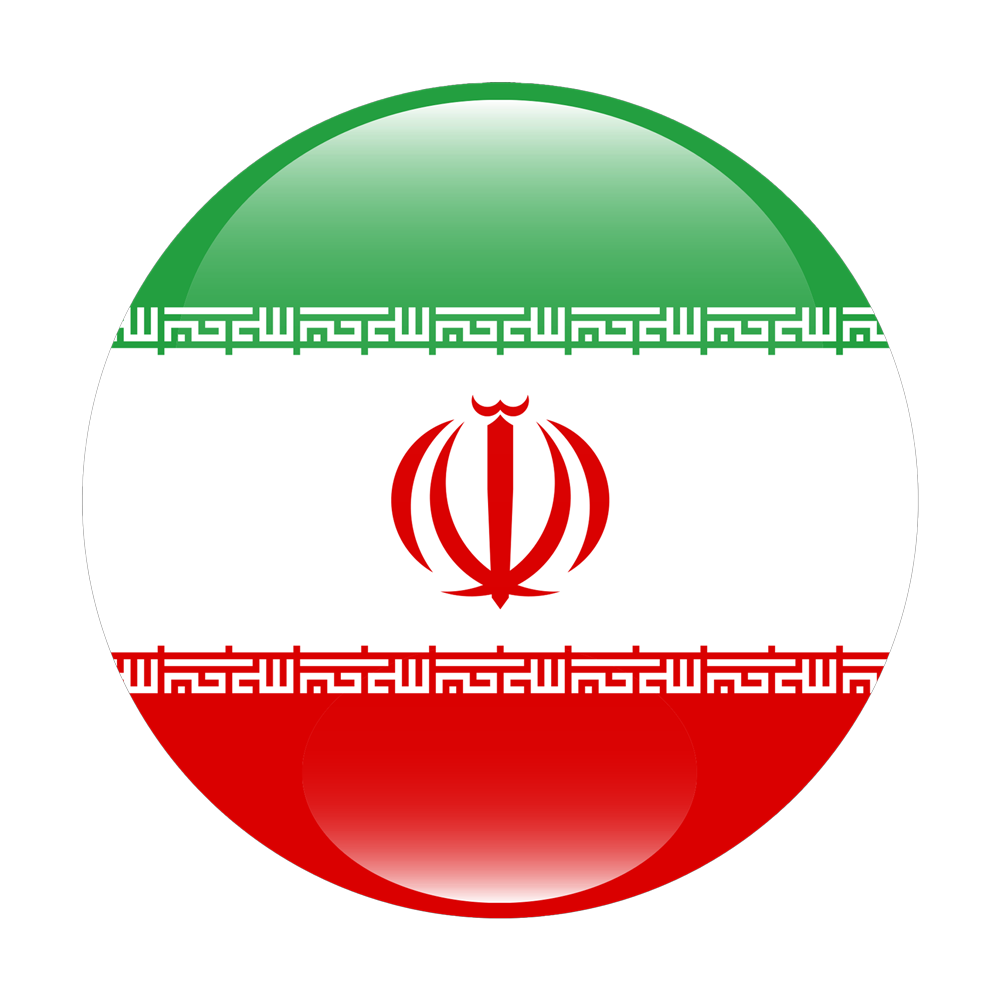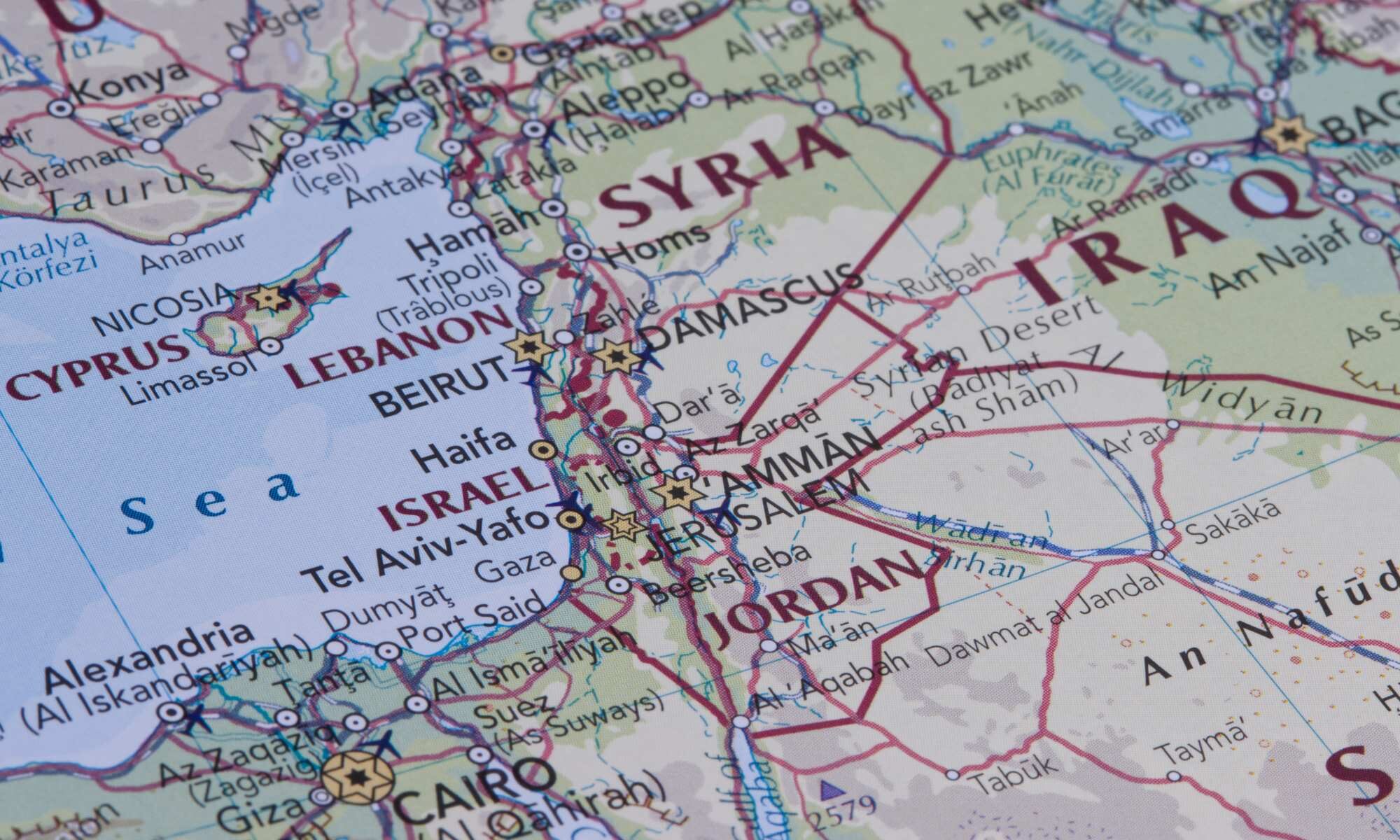On the day of Pentecost, when the Holy Spirit came upon Jesus’ followers, Peter stood and addressed those who doubted what they were seeing. In his defense of the resurrection, the apostle quoted King David from the Psalms: “The Lord said to my Lord, ‘Sit at My right hand, until I make Your enemies a footstool for Your feet’” (Acts 2:34–35; see also Psalm 110:1). Who are these enemies?
Ever since the creation of the State of Israel in 1948, the nations that surround it have not exactly been friendly. There have been times of peace, and Israel has developed formal relations with some of them. However, the world—especially the Middle East—is still far from the goal of God’s enemies being a footstool under the feet of the Messiah. Understanding Israel’s relationships with its neighbors today will provide insight into how close we are to witnessing God’s victory over His enemies.
 Syria
Syria
Since the fall of the Assad regime in December 2024, Syria has undergone significant political changes, with President Ahmed al-Sharaa, former leader of the jihadist group Hayat Tahrir al-Sham (HTS), assuming power. The country is now under Islamist rule with a transitional government led by Prime Minister Mohammed al-Bashir. Relations with Israel are volatile, with Israel conducting airstrikes against Iranian supply lines and militia bases inside Syria to create a larger buffer zone for its own protection.
Under Bashar al-Assad, Syria maintained tense relations with Israel, largely due to Assad’s alliance with Russia and his tolerance of Iranian influence in Syria. These ties posed a strategic threat to Israeli national security. However, with Assad’s removal, the balance of power shifted. While the new leadership officially severed ties with Iran, their jihadist ideology and militant posture toward Israel have reignited concerns about possible threats to Israel’s security.
In late April 2025, the situation escalated when the new Syrian regime launched attacks against the Druze community in southern Syria. The Druze, a religious minority living in several countries in the Middle East, have a significant presence in Israel. Many Druze serve in the Israeli military and are appreciated for their culture and contributions to Israeli society. Because of this, the Druze communities in other countries have long maintained close ties with Israel, which they consider a strategic ally. In response to the Syrian regime’s attacks against the Syrian Druze population, Israel intervened militarily, launching targeted strikes in southern Syria to defend the Druze population and deter the spread of Islamist influence near its border.
 Lebanon
Lebanon
In early 2025, Lebanon emerged from a devastating war between Israel and Hezbollah (deeply entrenched within Lebanese territory) and entered a new political chapter under President Joseph Aoun and Prime Minister Nawaf Salam. For decades, the Lebanese government offered little to no support in combating Hezbollah, leaving Israel to manage the threat alone. The 2024 conflict significantly weakened Hezbollah, but neither the terrorist organization, its military, nor its political factions have been fully eliminated. An uneasy ceasefire is currently in place, with Israel conducting surveillance and occasional limited cross-border operations to monitor and deter terrorist activity.
The new Lebanese government, officially elected in January 2025, has publicly expressed its intention to reduce Hezbollah’s influence, but internal divisions complicate its position. While the government has called for Hezbollah’s disarmament and has stated its desire for state institutions to be the sole possessors of weapons in Lebanon, it also strongly opposes Israeli military presence within its borders, at times even labeling Israel as “occupiers.” This dual stance has strained Lebanon-Israel relations despite both countries sharing an interest in neutralizing Hezbollah’s destabilizing role.
Within Lebanon, public opinion is deeply divided. Many Lebanese citizens, especially among Christians and religious minorities like the Druze and Sunnis, view Israel as a potential ally in their desire to see Hezbollah disarmed or removed entirely. However, some—particularly the Shi’ites and others aligned with Hezbollah’s ideology—remain resistant to Israeli intervention regardless of whether they support the militant group.
Lebanon’s new leadership faces the daunting task of restoring national sovereignty, which includes keeping Hezbollah at bay and navigating a complex geo- political landscape shaped by decades of conflict and mistrust.
 Egypt
Egypt
Egypt has a complex relationship with Israel that was initially shaped by decades of conflict and cautious diplomacy. Though they fought against each other in multiple wars, the two countries formalized peace through the 1979 Camp David Accords, maintained under current President Abdel Fattah el-Sisi. However, relations between Israel and Egypt have grown increasingly tense over the last few years, particularly over Israel’s military actions in Gaza and concerns about the possible relocation of Gazans to the Sinai Peninsula.
Israel’s defensive response to the terrorist assault of October 7, 2023, has sparked widespread anger across the Arab world, including in Egypt. The situation has worsened due to claims that Israel—and, at times, the United States—have proposed the relocation of large numbers of Gazans to the Egyptian region of the Sinai Peninsula. Cairo has firmly rejected these suggestions, viewing them as a violation of Egyptian and Palestinian sovereignty and a dangerous precedent that could destabilize its border and population balance.
Despite Egypt’s formal peace agreement with Israel, popular sentiment in Egypt remains largely opposed to Israeli policies toward Palestinians. The Egyptian government has to balance its official diplomatic stance with domestic pressures, especially amid rising regional instability. In addition, Egypt has played a strategic role in mediating ceasefire talks and prisoner exchanges between Israel and Hamas, aiming to contain conflict spillover and preserve its regional influence.
Though there are currently no direct hostilities between Egypt and Israel, there is a level of mutual distrust that persists beneath the surface. As other conflicts in the region intensify, particularly in Gaza, the potential for escalating tensions grows higher.
 Iran
Iran
Iran, under Supreme Leader Ayatollah Ali Khamenei and President Masoud Pezeshkian, continues to maintain openly hostile relations with Israel, consistently threatening its existence and supporting a network of regional proxies. These include Hezbollah in Lebanon, the Houthis in Yemen, and Hamas in Gaza. This is one way the Iranian regime attempts to project power and harass Israel on multiple fronts.
In recent years, Iran’s power and influence have been significantly weakened by a number of internal and external factors. The fall of the Assad regime in Syria—one of Iran’s key regional allies—significantly disrupted Iranian supply lines and influence, particularly with respect to access to Israel. Israeli military operations in the last few years have also weakened the regime’s regional standing, with repeated airstrikes targeting arms depots, military facilities, and infrastructure not only in Iran but in other countries where it has influence.
Iran has also suffered economically, thanks, in part, to US sanctions, poor government financial management, and its overall standing as a hostile nation. These circumstances have severely hindered the regime’s ability to finance its regional ambitions.
Despite financial setbacks, Iran remains committed to rebuilding its capabilities, particularly its nuclear program. In response to Iran’s nuclear ambitions, Israel has increased its cyber and intelligence operations, targeting nuclear sites and key facilities and personnel within Iran.
Though significantly weakened, the Iranian regime remains a constant threat to Israel and its allies through the combination of ideological hostility, nuclear ambitions, and proxy warfare. While the Iranian regime is hostile to Israel, many Iranian civilians are supportive of the Jewish nation, longing for the overthrow of the regime to bring peace and stability to the region.
 Jordan
Jordan
Jordan, under King Abdullah II, has maintained official peace with Israel since the 1994 treaty, but relations have become increasingly strained in recent years. Despite diplomatic tensions, security coordination between the two countries continues.
Recently, Jordan has taken notable steps to stop the disruptive activities of Islamist militant groups within its borders, including Hamas (through the Muslim Brotherhood) and Palestinian Islamic Jihad, which shows a surprising shift toward a stronger stance against extremism. Jordan’s crackdown on these terrorist groups could indicate it is committed to security cooperation with Israel and to a broader effort to maintain internal and regional stability.
At the same time, Jordan has stated it refuses to take in any more Palestinians from Gaza or Judea and Samaria, rejecting any notions that it would be willing to serve as a resettlement destination. This position stems from both domestic concerns and the fear of being seen as undermining the “Palestinian cause” by facilitating displacement.
However, facing international pressure, the Jordanian government later announced it would accept several hundred Palestinian children for medical care and temporary refuge. This shift, though not necessarily viewed favorably by other Arab countries, could also be another move to show willingness to cooperate with Israel and its allies.
Overall, Jordan remains a key player in the Middle East, with its formal peace with Israel, increased counterterrorism efforts, and willingness to discuss initiatives that could lead to a broader peace. But it continues to navigate a delicate balance between supporting stability and protecting its own national interests amid mounting tensions across the region.
Conclusion
God revealed to Zechariah that a day will come when He “will gather all the nations against Jerusalem to battle” (Zechariah 14:2, emphasis added). He does not limit his warning to those immediately adjacent to Israel. However, the final outcome will be global worship as even those who previously fought against Israel will “go up [to Jerusalem] from year to year to worship the King, the Lord of hosts” (Zechariah 14:16). This word of encouragement includes those nations who are hostile toward Israel today.

Sign up to receive our email newsletters
Get the latest news from Israel, insights from Dr. Mitch Glaser, international ministry reports, as well as videos and podcasts, downloadable resources, discounts in our online store, and much more!
